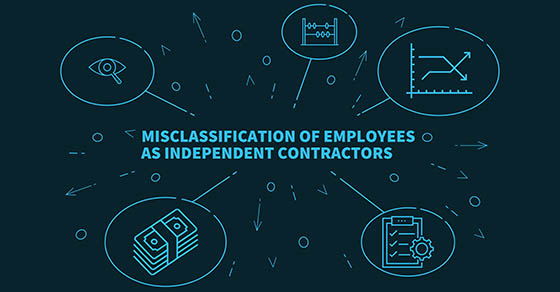Insights: Tax Services
Strengthening Business Operations: The Importance of Internal Controls for Vendors, W-9 Tax Forms, and Issuing 1099s
Written By: Saudra Uy, CPA CVA CGMA Effective internal controls are the backbone of any well-managed business. They play a crucial role in safeguarding assets, ensuring accurate financial reporting, and mitigating the risk of fraud. When it comes to vendor management and tax compliance, implementing robust internal controls is vital. In this article, we will…
Read MoreHiring family members can offer tax advantages (but be careful)
Summertime can mean hiring time for many types of businesses. With legions of working-age kids and college students out of school, and some spouses of business owners looking for part-time or seasonal work, companies may have a much deeper hiring pool to dive into this time of year. If you’re considering hiring your children or spouse,…
Read More2023 Q3 tax calendar: Key deadlines for businesses and other employers
Here are some of the key tax-related deadlines affecting businesses and other employers during the third quarter of 2023. Keep in mind that this list isn’t all-inclusive, so there may be additional deadlines that apply to you. Contact us to ensure you’re meeting all applicable deadlines and to learn more about the filing requirements. July…
Read MoreWill your Estate be Subject to the Estate Tax?
By: Layne Blasingim When someone passes away, they may leave behind assets such as property (real and/or personal), investments, checking accounts and savings accounts. The process of transferring these assets to their beneficiaries is called estate administration. As part of this process, the estate may be subject to taxes and required to file an estate…
Read MoreTraveling for business this summer? Here’s what you can deduct
If you and your employees are traveling for business this summer, there are a number of considerations to keep in mind. Under tax law, in order to claim deductions, you must meet certain requirements for out-of-town business travel within the United States. The rules apply if the business conducted reasonably requires an overnight stay. Note:…
Read MoreAdvantages and disadvantages of claiming big first-year real estate depreciation deductions
Your business may be able to claim big first-year depreciation tax deductions for eligible real estate expenditures rather than depreciate them over several years. But should you? It’s not as simple as it may seem. Qualified improvement property For qualifying assets placed in service in tax years beginning in 2023, the maximum allowable first-year Section…
Read MoreKeep these DOs and DON’Ts in mind when deducting business meal and vehicle expenses
If you’re claiming deductions for business meals or auto expenses, expect the IRS to closely review them. In some cases, taxpayers have incomplete documentation or try to create records months (or years) later. In doing so, they fail to meet the strict substantiation requirements set forth under tax law. Tax auditors are adept at rooting…
Read MoreThe IRS has just announced 2024 amounts for Health Savings Accounts
The IRS recently released guidance providing the 2024 inflation-adjusted amounts for Health Savings Accounts (HSAs). HSA fundamentals An HSA is a trust created or organized exclusively for the purpose of paying the “qualified medical expenses” of an “account beneficiary.” An HSA can only be established for the benefit of an “eligible individual” who is covered…
Read MoreIf you’re hiring independent contractors, make sure they’re properly handled
Many businesses use independent contractors to help keep their costs down — especially in these times of staff shortages and inflationary pressures. If you’re among them, be careful that these workers are properly classified for federal tax purposes. If the IRS reclassifies them as employees, it can be an expensive mistake. The question of whether…
Read MoreBeing a gig worker comes with tax consequences
In recent years, many workers have become engaged in the “gig” economy. You may think of gig workers as those who deliver take-out restaurant meals, walk dogs and drive for ride-hailing services. But so-called gig work seems to be expanding. Today, some nurses have become gig workers and writers in Hollywood who recently went on…
Read MoreSUBSCRIBE TO OUR NEWSLETTER
Receive timely news and updates from our newsletter.










